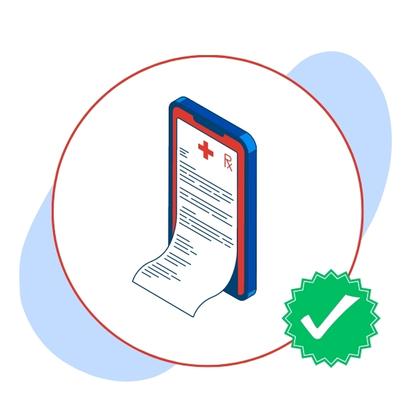Get Your Legitimate Emotional Support Animal Letter in North Carolina

4.9/5.0 based on 10K+ reviews
Proudly Featured


How to Get an ESA Letter in North Carolina Online?
Our Process: Fast, Easy, and Secure!
Schedule An Appointment

Consult With Doctor

Receive Your ESA Letter
Get approved and receive your ESA Letter signed by our professional in your email.

Fast ESA Letter Offers 100% Money-Back Guarantee
If not qualified, we offer a 100% Money-Back Guarantee.
What Our Customers Say!
PROFESSIONALS BEHIND EVERY ESA APPROVAL
Meet Our Licensed Mental Health Professionals

Dr. Stanford Purnall

Dr. Mary S Gaynor

Dr. Robert Clendenin MD

Dr. Karambir Khalsa

Dr. Hosam Atoom
What Does North Carolina Law Say About An Emotional Support Animal?
Nobody enjoys taking a tonne of medications and going to the hospital for treatment when it comes to treating a mental health problem like depression or PTSD. However, if left untreated, these medical conditions might occasionally get worse. Doctors advise keeping a pet as an emotional support animal because of this. The love, care, cuteness, and emotional support provided by the ESA can aid patients with their mental health difficulties. But what if the tenant lives in rental properties where pets are not permitted by the landlord?
In this situation, an ESA letter is composed and signed on company letterhead by a licensed mental healthcare professional (LMHP). But where can you get a nearby LMHP who can assess your health and write an ESA letter for housing? The response to this query is available from Team Fast ESA Letter. We provide a simple, three-step approach that allows you to receive an ESA letter on the same day. Therefore, wherever you live, you will be able to stay with your ESA.
Benefits of Emotional Support Animals for New Carolina Residents
- Minimizes Stress and Anxiety Symptoms: Interacting with animals encourages your brain’s natural release of happiness chemicals such as serotonin and dopamine, while reducing the stress hormone cortisol. Thus, having an Emotional Support Animal can aid in the overall mental well-being of the individual.
- Enhanced Socialization: Having an Emotional Support Animal can facilitate socialization. You can interact with other pet owners. Studies demonstrate that people love interacting with individuals with pets. Therefore, having an Emotional Support Animal fosters a feeling of community, which can benefit individuals struggling with loneliness.
- Support And Companionship: Emotional Support Animals provide their handler with secure, unbiased social support. Their physical presence has the power to soothe and lessen the effects of stress and anxiety. Additionally, they lessen feelings of loneliness by providing emotional support and social assistance.
North Carolina Emotional Support Animal Laws
Concerning Emotional Support Animals North Carolina has implemented the federal Fair Housing Act (FHA) for the protection of the housing rights of ESAs. The Act ensures that tenants with mental health disorders who depend on their ESA for unwavering love and care must get a reasonable accommodation with their ESA in any rental housing. Moreover, this gives them access to even no-pet policy buildings without paying any additional fees.
Under the Fair Housing Act, your landlord cannot restrict your emotional support animal or charge you more because of its breed, size, or weight. However, if the pet hurts someone, causes property damage, is obnoxious or violent, or barks excessively, your landlord can give you a 10-day notice to leave the property.
The Americans with Disabilities Act (ADA) protects service dog rights. However, Emotional Support Animals in North Carolina do not have the same advantages as service dogs. Therefore, the owner of an ESA cannot bring an ESA to work for assistance. Legally, neither employees nor employers are required to accept Emotional Support Animals (ESA) in the workplace. However, if the employee can be more productive with their ESA present, they may provide some exemptions.


We offer our Customers a 100% Money-back Guarantee
If not qualified, we offer a 100% Money-Back Guarantee.
How To Get A Psychiatric Service Dog In North Carolina?
Both Psychiatric Service Dogs and emotional support animals can assist individuals with emotional or mental health conditions. However, if your disability is affecting your daily tasks, consider getting a PSD. To legitimize the presence of a Psychiatric Service Dog In North Carolina, an individual should have a Psychiatric Service Dog letter.
The Psychiatric Service Dog letter is a letter from a licensed mental health professional (LMHP), such as a psychologist, psychiatrist, nurse, or counselor, stating that the individual has a mental or emotional disability that can benefit from having a Psychiatric Service Dog.
One of the best and quickest ways to get a Psychiatric Service Dog letter in North Carolina is to use Fast ESA Letter’s telehealth portal, which can connect you virtually to a licensed mental health professional in North Carolina.
Why North Carolina ESA Parents Trust Fast ESA Letter?
HIPAA Compliant
Money-back Guarantee
24/7 Support
Accepted by Landlords
We Assist in Verifications
FHA Compliant
Our ESA and PSD Letter Strictly adhere to Fair Housing Policies. In case, you face any kind of trouble, you can turn to HUD with your legitimate ESA or PSD Letter.
Frequently Asked Questions
Does the Fair Housing Act (FHA) apply to all housing?
Who can write the Emotional Support Animal letter in North Carolina?
An authentic ESA letter can only be signed and issued by a registered medical healthcare professional (LMHP). Here is a list of a few experts in North Carolina that are qualified to certify an emotional support animal letter:
- A Doctor
- The psychiatrist
- Certified nursing professional
- A marital and family therapist with a license (LMFT)
- The psychologist
- A clinical social worker with a license (LCSW).
Can a landlord or housing provider ask details about my disability?
Is an Emotional Support Animal (ESA) permitted in no-pet housing?
What should I do to connect with the licensed mental health professional in North Carolina?
To speak with a North Carolina licensed mental healthcare professional (LMHP), you must register with us. The steps listed below can be used to obtain ESA letter:
- Fill out the short survey.
- Be examined by a registered physician nearby
- On the same day, get your ESA letter through email.
Looking To Apply For An ESA Letter?
Live Free with Your ESA!
An ESA Letter Unlocks Freedom!

